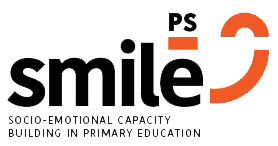Erasmus+ KA2 Strategical partnership for School Education
Socio-Emotional Capacity Building in Primary Education
Living in a time of incredible technological advances, in which more and more activities are being automated, it is important to focus on the development of those skills that make each one of us unique and that can help us go through these changes with a positive mindset and a strong attitude. Moreover, as information and communication technologies are rapidly evolving, so are our habits. We cannot dismiss the fact that, nowadays, more and more children are communicating on social networks and we cannot ignore how it affects them. However, these same technologies can also be used to encourage the development of emotional intelligence and socio-emotional competencies, contributing to reduce that feeling of alienation spreading in today’s society.
Emotional intelligence is a set of innate abilities, which include the ability to recognize, understand and manage emotions, to deal with emotional challenges and achieve our goals. On the other hand, Socio-Emotional (SE) competencies, which comprise SE knowledge, SE skills and SE values, help us to work with others, learn productively, and actively participate in our families, workcontexts and communities. Socio-Emotional education aims to teach and spread these essential abilities in order to build emotionally stronger, sympathetic and stable societies.
Research shows that emotional intelligence and socio-emotional competencies are critical to a child’s success. People who have well developed Social-Emotional literacy tend to have better relationships with others, to be more empathetic and aware of their own and others’ emotions, as they also learn how to manage them.
Socio-emotional competencies can be taught at all ages, but since they play a central role in children’s development, it would be better to encourage their attainment in the first seven years of a child’s life. Nonetheless, we should not neglect adults, especially those around children. In fact, teachers and parents are key facilitators of children’s emotional development and without a proper training in emotional intelligence and socio-emotional competencies, it would be very difficult for them to transfer those abilities to their children and pupils.
The analysis carried out in all project partners’ countries (Italy, Lithuania, Bulgaria, Greece and Portugal) shows their strong commitment to spreading emotional intelligence and socio-emotional competencies (self-awareness, self-management, social awareness, relationship skills and responsible decision-making), as all of them, to a certain extent, aim to include Social-Emotional Learning (SEL) in their national education plans. By recognizing the importance of developing children’s socio-emotional competencies, more and more countries around Europe are realizing that, in order to build strong and resilient societies, cognitive skills are not enough and that a better understanding of emotions can make a difference in everyone’s life.
